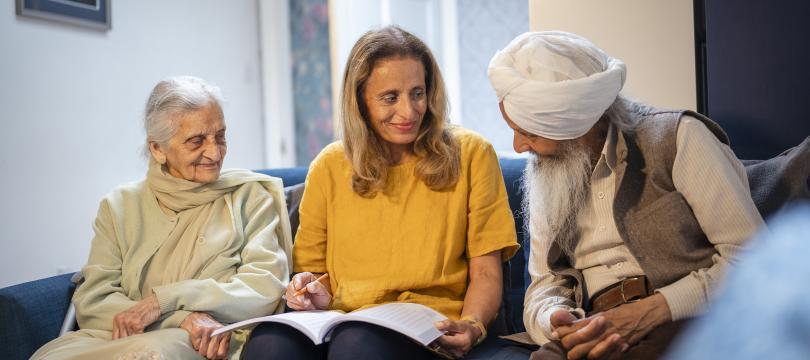Assisted dying: Deepening our understanding of public opinion
The Nuffield Council on Bioethics (NCOB) blog about their new project that seeks to explore the public attitudes towards assisted dying in England.
By Molly Gray, Project Manager, NCOB
The debate surrounding assisted dying has once again come to the fore in the UK. Assisted dying is currently not permitted in England, however, there are many factors that indicate that the question of whether assisted dying should, or should not, be permitted remains unresolved in the UK. For example, the parliamentary Health and Social Care Committee holding an inquiry on assisted dying/assisted suicide this year.
It’s striking that despite the longstanding ethical debate on assisted dying and an increase in public awareness on the topic, there is a lack of in-depth evidence capturing the public views towards the complexities raised by assisted dying in England. Currently, most available data exploring public perspectives on assisted dying in England are based on opinion polls which often do not capture relevant complexities involved in the debate. This lack of in-depth evidence has also been referenced in political discussions over the years. This project is an opportunity to address this gap. Informing policy and public discourse and putting ethics at the centre of decision making.
What will we be doing?
Over the next 12 months, we will be undertaking a three-stage process of public engagement and survey activities with our partners, to engage with the public to capture the attitudinal nuances associated with assisted dying. This includes:
- An initial nationally representative quantitative survey of the English population
- A Citizens’ Jury in England
- A second nationally representative quantitative survey of the English population
This multifaceted approach will allow us to delve into the ethical, social, and practical intricacies surrounding the topic of assisted dying and reflect the sentiments of people living in England.
Why a Citizens’ Jury?
Citizens’ Juries are a form of deliberative democracy and a tool for engaging with citizens on a wide range of policy issues. Citizens’ Juries emphasise the importance of consensus, collective decision-making, and deliberation. Inherent to the process is providing a range of perspectives and information so that jurors are fully informed and base their recommendations on evidence and solid reasoning. As a result, they can prove especially effective when addressing contentious issues, such as assisted dying, where knowledge is often disputed and there may be significant ethical and social implications.
Countries that have found themselves in similar positions as the UK when reflecting on assisted dying, including Jersey, France, and New Zealand, have looked to Citizens’ Juries as a way of capturing appropriately rich qualitative data from a range of perspectives on the topic. In these cases, Citizens’ Juries, coupled with a wider consultation and public engagement, have informed decision-making at the highest level. This is a testament to the value of this approach. We aim for our Citizens’ Jury to allow for the in-depth exploration on the topic at a deeper level and to explore complex scenarios to help deepen our understanding of public opinion on the subject.
The NCOB will not be taking a position on assisted dying but will be focusing on presenting the findings from the project engagement work.
In a year's time, the findings from our project exploring the public views on assisted dying will be published. Between November 2023 and October 2024, the NCOB, together with commissioned partners Hopkins Van Mil and M.E.L Research, will be undertaking a series of quantitative surveys and a large Citizens’ Jury to unpick the public views on the highly complex, sensitive, and ethically charged topic.
The aim of the project is to deliver credible, well-informed, evidence of public views about assisted dying in England with the goal of generating an informed public debate on the issue. We want to embed the findings of the public engagement work with key decision-makers.
If you would like to stay up- to-date with the project, including receiving updates on the progress of the project, sign up to mailing list .

